Five Questions
Award-winning chef touts 'Southern comfort cooking' in new book during first Texas visit
For those who keep up with the national culinary world, Ashley Christensen needs no introduction. The chef-owner of seven bars and restaurants in Raleigh, North Carolina— or in her words "projects" — Christensen won a James Beard Award in 2014 for her work at Poole's Diner, where the chalkboard menu features locally-sourced ingredients and one cook is dedicated to serving its legendary mac and cheese.
Christensen came to Houston to cook at Southern Smoke, Underbelly chef-owner Chris Shepherd's fundraiser that raised over $280,000 for the National MS Society, and also to promote her first cookbook, Poole's: Recipes and Stories from a Modern Diner. In its review, The New York Times writes that Christensen "collects recipes from Poole’s Diner, her flagship restaurant, in Raleigh that range broadly from down-home to sophisticated, and from easy to labor-intensive. But page to page, her approach remains the same: exquisite ingredients and exact instruction, applied to classics of Southern comfort cooking."
Want a taste? Revival Market chef-owner Ryan Pera will host Christensen for a special dinner and book signing party Wednesday night. Revival will serve passed appetizers and a three-course meal inspired by Christensen's book. As of Wednesday morning, a few seats remain available. Tickets are $150, which includes the meal, pairings, and a signed copy of the book.
CultureMap: What about participating in Southern Smoke appealed to you?
Ashley Christensen: As friends in cooking, folks like Chris and myself go a lot of places to be a part of causes that are important to our friends. It’s such an amazing way to make community grander. Chris was just with me cooking three or four months ago. Awhile back he called me to be a part of this event and he told me the story about why it came to be and why it means so much.
I think for all of us in cooking, you come to realize what a big effect you can have on great causes. It’s something that touches every community. I love that my first trip to Texas is coming to be part of something that’s meaningful to someone who helps us with things that are meaningful to us in our neighborhood.
CM: Are you excited to be working with Ryan Pera to host a dinner in Houston?
AC: After committing to be a part of the event, it happened to overlay with my book tour, which is super fun to be able to not just go around telling your story but getting to take a moment and get to engage with other folks on the road. Ryan and I met briefly at Southern Foodways Alliance Symposium. Lindsey (Brown) and Chris introduced us and created the opportunity for us to work together to celebrate my book, which is called Poole's: Recipes and Stories from a Modern Diner.
My approach to taking the book on the road and our story on the road is much like just when we travel, not just finding a way for us to tell a story but for it to be a true dialog. Ryan, of course, being a Southerner by birth by expressing Southern food very uniquely, I had the opportunity to eat at his restaurant last night and it was fantastic. We don’t know each other well, but I feel like I had the opportunity to know him better after sitting at his table. Such a great way to get to know someone a little better. It feels like a really natural connection.
What I’m asking folks to be open to doing at each place we make a stop on the tour is not to cook directly from the book, but to find inspiration from the recipes in the book and express them through the voice of their restaurants. I felt very awkward imagining going around the country and going, here, cook my food, and I’m going to sit here and eat it while you do it. I think that’s a little awkward for everybody. I see how that works sometimes, but, for me, I wanted a few things. I wanted the guests who were sitting at these restaurants all over the country where we’re traveling to see the food that I think is really well-defined and described in the book, but to see how stories, how the paths cross when two different people are having a conversation.
I wanted it to be clear that there was a connection to the book, but I also wanted it to be unique in how each person expressed it. My goal is that each person who buys the book will do the same. They’ll read about these recipes. They’ll look at something a different way, but they’ll ultimately find a way to let it be something that adds to things they already cook at home or ingredients that are unique to where they live but a different way to approach those ingredients based on the stories we’re telling and how we’re describing what we’re doing.
CM: What was the experience of writing the book like?
AC: It’s funny. Getting out that sort of big notebook of all the things we’ve ever done. We’re at a restaurant where all the menus are on chalkboards. The early years, before we started typing everything up before it went on the chalkboards, are these notebooks full of all the various things we did. Then you have the later digital versions of that stuff.
Going into it, I have a two book deal with Ten Speed Press, at first I thought I would write my big, well-rounded book of all the different ways I think about food. Then when I thought about it, I realized the first story to tell is of the place that I felt like really introduced us to the rest of the country and also introduced us to ourselves and how we grew up a little bit and matured into being comfortable with telling our story instead of being fascinated by all the other things going on outside.
I think the second book is more influenced by everything. I had in my mind, oh, this will be so much easier, because I lived this story everyday. We’ve got all these documented recipes. Then you starting going through things, and you realize you have a tendency to highlight a lot of the same ingredients. It will be easy to make the vinaigrette section, I’ve got 400 salads we’ve done. Well, 96 of them are beet salads. Then you cut it down to the things that really represent the story you’re telling, especially as that story goes out to the rest of the country to people who have never been to the restaurant before. They might not have that appreciation for the fact that there’s always a beet salad on the menu. Give that introduction, then choose one or two that really highlight our techniques and our approach.
Long story short. It was a lot harder than I thought it would be, but it was a really neat process. I think it was a neat reevaluation of our history. You have this sort of well-rounded emotion about what it all means, but then you sit down to responsibly tell the story, it’s a lot to recall all that stuff and blow it up and look at everything.
It was really exciting, it was pretty emotional. For me, it was my first restaurant. I feel all those things that made it possible. I feel tremendously grateful for all the things that made it possible. Then you go back and carefully write down all the stories again, it was kind of like living it again. It was a wonderful experience and the kind of thing where you’re writing, and it sounds nuts, but it’s damn, that happened. Then you go back and read it, and it’s kind of a tear jerker to read all that stuff again.
CM: One of the other things you discussed during your appearance on the Eater Upsell podcast is that you’ve learned something from everyone you’ve ever cooked with. What did you learn from Chris Shepherd?
AC: I think the way he makes people feel and the conversations he opens up. His food is so generous. He is the captain of his food, for sure, but his food is very selfless. He’s telling the story of all these other places in this community. I think that’s probably something I don’t do enough of. I’m focused, like so many people are, on our farmers and our folks who are making and producing stuff, but I’m working harder from his leadership to focus on telling the story of the people in the spread-out parts of our community.
Our city really is changing and growing. The best thing that has come of late is seeing a little bit more ethnic food being celebrated in what we would consider non-traditional ways. Really excited to see that stuff come into our city, and I think Chris more than anything sets the example that we can help facilitate that, that we can get people fired up about that.
CM: You recently announced that you’re closing one of your restaurants to sell it to a person who’s worked for you for a long time. Is supporting the people who’ve worked for you the next aspect of your career?
AC: I sure hope so. I worked for a guy, not for very long, his name is Scott Howell, he owns a restaurant called Nana’s in Durham, which is 25 miles from where I am. I watched him — there are a lot of chefs who make other chefs — this is a chef-owner who makes other chef-owners. For someone like me, working for him and getting to ask him about all these incredible things, and him sharing all this knowledge with me, I kind of went into the world feeling very equipped from my time with him.
I think what we did with Joule is kind of a unique situation. I can’t see us selling our stuff. This was a unique place where Sunny (Gerhart), who was my sous chef at Poole’s Diner opening up, he worked with me in the restaurant I was cooking at before that, came over with me. Went over to Durham, came back, we wanted to work on something together. We opened the coffee shop, and that’s three years old.
He gave me his notice 12 months ago. It’s been really fun to watch him go through it and be a resource to him and support his process. To say, that’s maybe not a great deal. It’s great that you’ve got folks who are interested in a partnership, but here are some things to think about.
We’re having all these conversations. Much like writing the book, I started to think about all those feelings when you’re trying to finance your first project and how vulnerable you feel because of the things people have that you don’t have. But you’re the heart of it with your idea. I just started to realize that this place that’s been one of our more challenging projects, but it’s a great coffee shop, it’s been a really successful project in the way it’s been received by the community . . . As I looked at a time in Raleigh when there aren’t a ton of buildings in the middle of downtown, he was looking on the outskirts. I love that, but the stars have to align to launch that successfully.
It just hit me that we had this thing that he had been such a huge part of. It was an opportunity to do for him what my first investor had done for me. We sold it to him in a really supportive way, which is we carry the debt for him for awhile. I will be a partner, but I will not be the majority partner. When he buys out the debt, I’m out. For my first restaurant, I had an investor who was deeply interested in my success. When people ask me for my advice on opening restaurants, it really does require some unique relationships to have people who care about you like they’re your blood. I feel that way about him. I realized as I was talking to him about finding his unique partner that I was his unique partner.
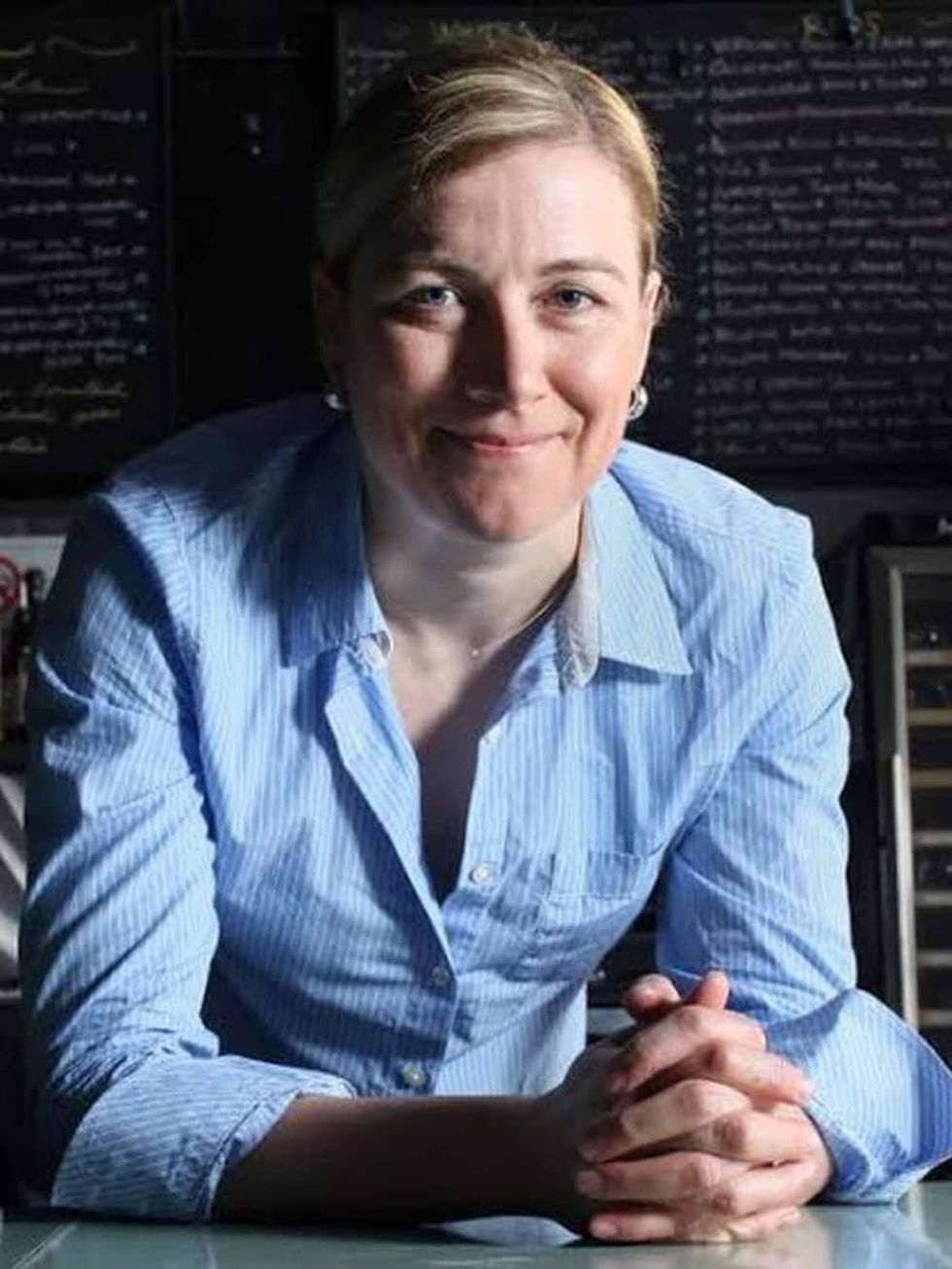
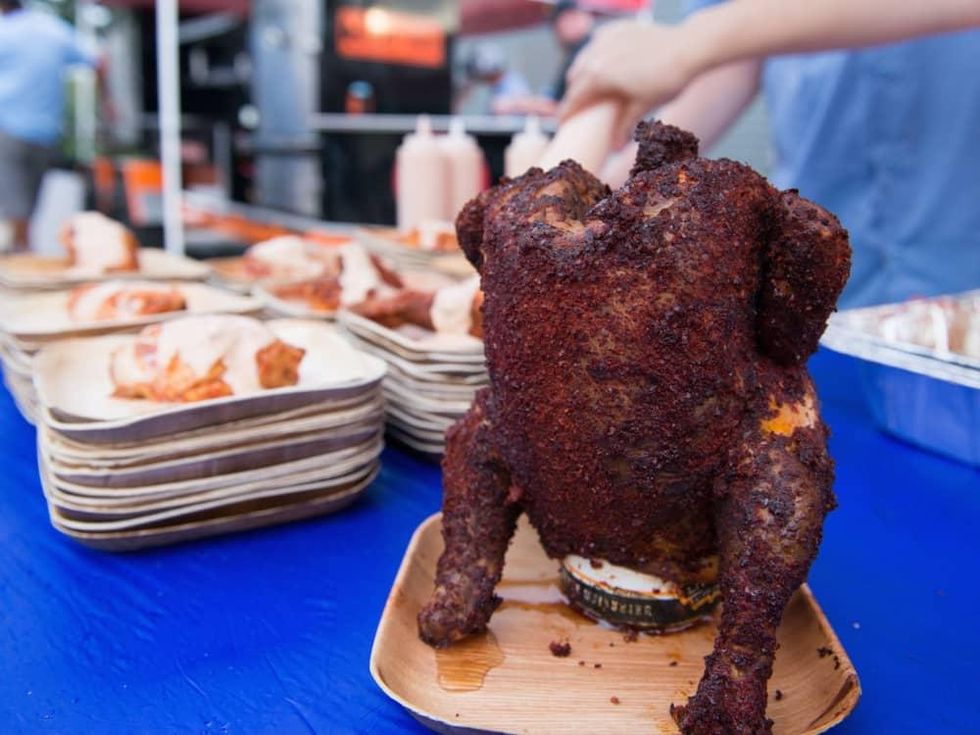
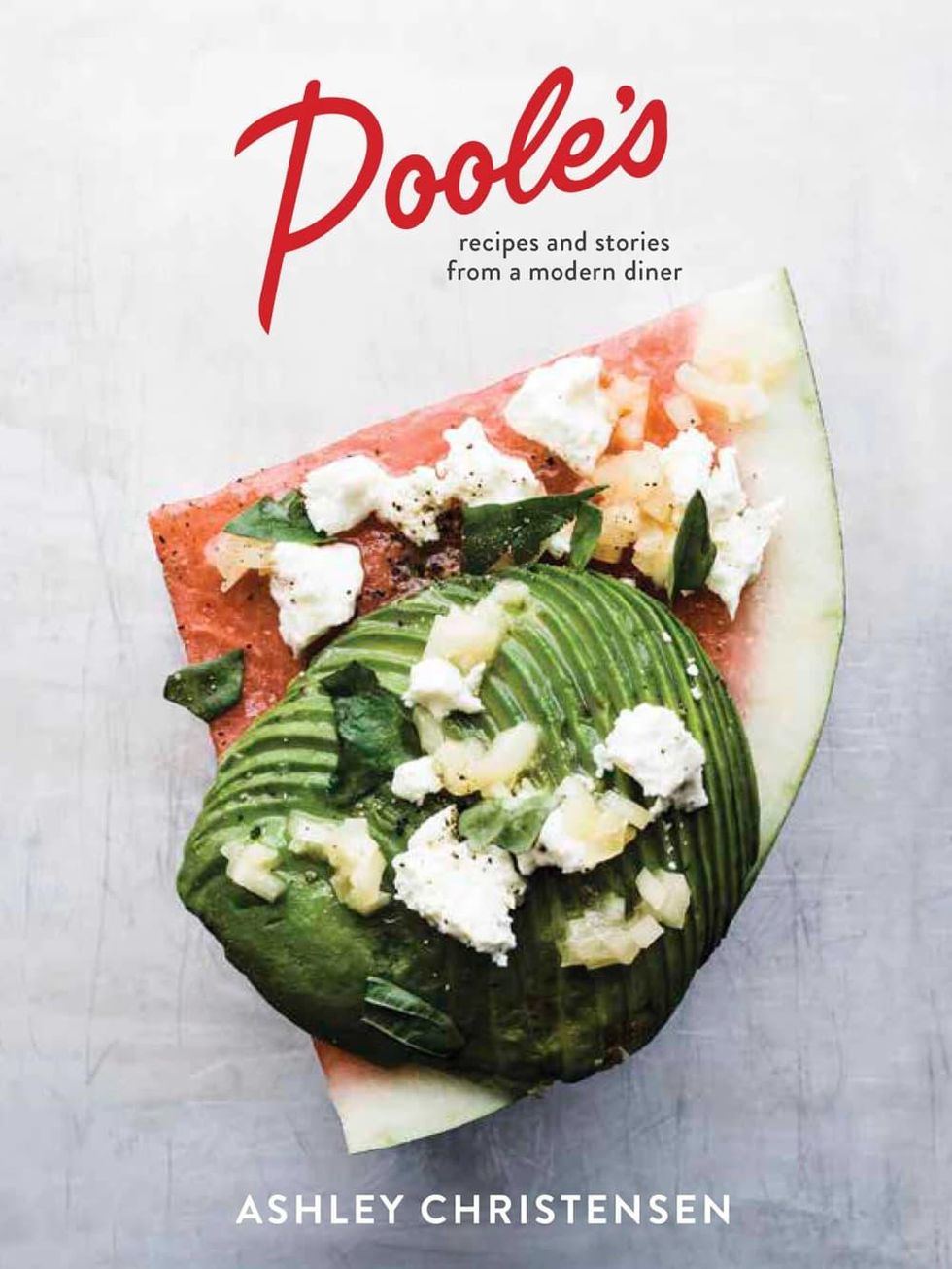
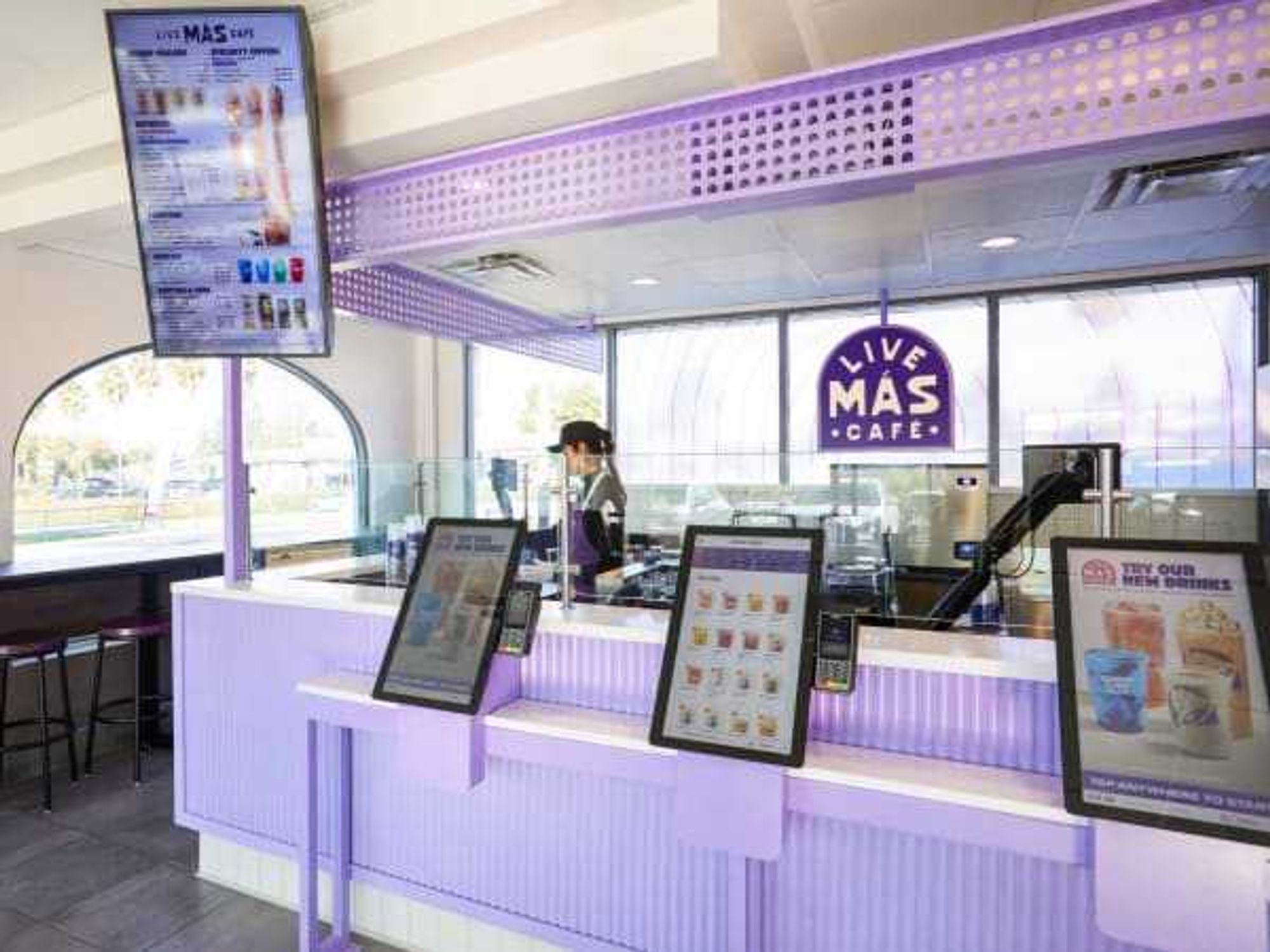
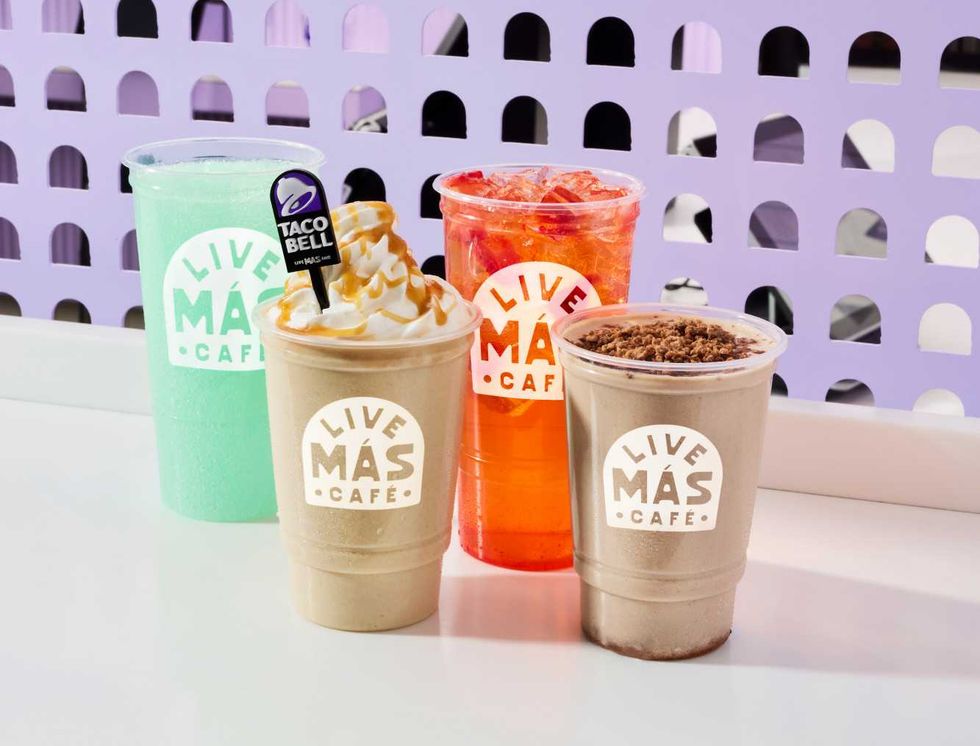 Live Mas Cafe drinksTaco Bell
Live Mas Cafe drinksTaco Bell